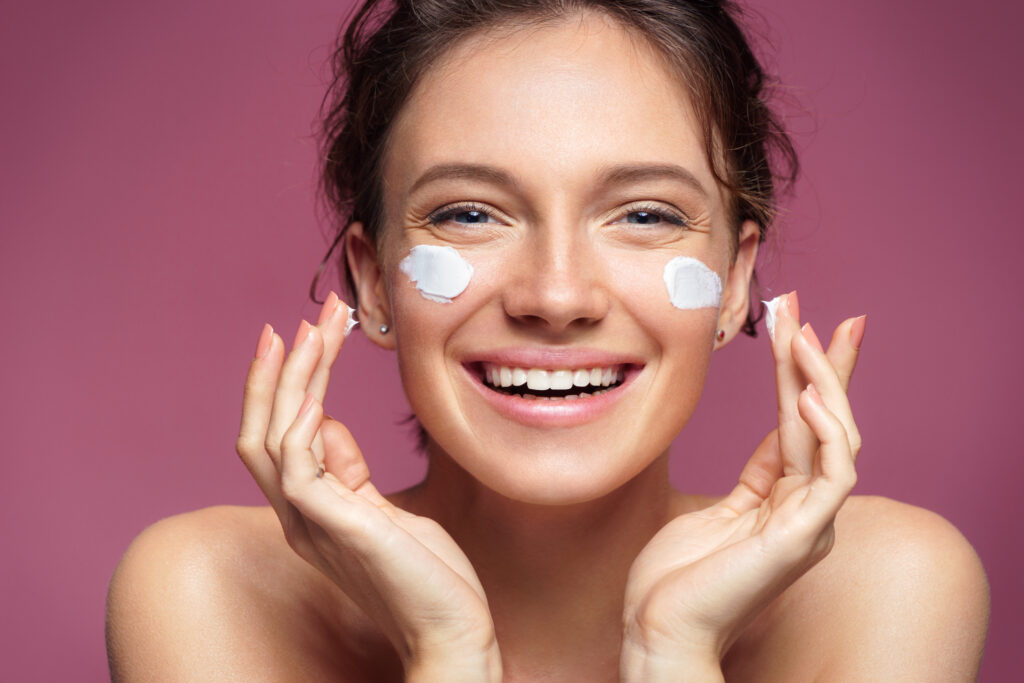Everyone strives for beautiful, glowing skin. But in reality, we all struggle with acne from time to time. Wrinkles, eczema, and psoriasis can also affect our self-esteem.

Besides wanting to look our best, the importance of healthy skin ties directly with our overall well-being.Your skin is the largest organ in your body and deserves to be appreciated for acting as a vital barrier between you and the outside threats of your daily life.
Acne is the most common human skin ailment. Pimples — as they’re so lovingly referred to — occur when sebum mixes with dead skin cells and clogs the pores. The clogged pores then become red, raised, inflamed bumps — pimples!
Acne occurs most prevalently in adolescents, teens, and early adulthood, though it may continue throughout your whole life.
Although acne is a completely normal part of being human, it still feels very isolating and distressing when you’re having a breakout.
Severe acne sometimes leads to depression, anxiety, and social dysfunction. We also associate the loss of self-confidence and self-esteem with acne.
In the United States, we spend over a billion dollars annually on acne treatments and products. Many choices exist to treat acne, but CBD skincare gives us an option to heal acne with our body’s own system.
What Is CBD?
Cannabidiol (CBD) is one of the most common hemp-derived cannabinoids. Unlike THC, CBD won’t make you feel “high,” but it delivers the same anti-inflammatory effects (just through different mechanisms).
CBD also has antioxidant properties, which plays an important role in protecting your skin.
How CBD Helps With Acne
CBD provides a healing effect on sebocytes, the cells that generate sebum. CBD helps prevent or reduce inflammatory cytokines. CBD and other cannabis compounds in hemp beauty products also exert antioxidant, antibacterial, and antifungal effects.CBD skincare specifically aids in reducing acne by:
- Reducing inflammation, redness, and swelling.
- Reducing stress and anxiety. Stress and anxiety increase cortisol production, which is known to trigger breakouts.
CBD Will Help the Overall Health of Your Skin
Using topical CBD products helps the skin’s overall health by targeting the problem at the cellular level. Whether you use a CBD skincare cream for acne or body lotion for a relaxing massage, the anti-inflammatory, antioxidant properties of CBD will leave your skin glowing.
CBD skincare also helps manage other skin conditions. Using CBD topicals on psoriasis may help control excessive skin cell growth. An ointment with CBD may also reduce acne-related scarring.
How to Use CBD for Acne and Other Skin Conditions
CBD may contribute to the healing and management of acne in two different ways. Taking CBD oil for acne in supplements or tinctures will help manage acne from the inside out. Taking oral CBD helps with digestion, especially in processing sugary and fatty foods. When the liver experiences difficulty metabolizing these foods, it may cause blotchy skin or contribute to acne.
Many traditional acne soaps and medicines may dry out your skin and cause flaking. Oral medications, such as antibiotics, may cause anything from yellowing teeth to yeast infections.
Using oral CBD products for acne not only helps the overall health of your skin but may also improve your sleep and help manage your stress levels.
Using CBD to manage acne works even better when supported by a healthy lifestyle. Eating healthy food, exercising, getting plenty of rest, and reducing stress will also help control acne.
Not All CBD Products Are Created Equally
As an industry that comes in at well over 20 billion dollars annually, CBD attracts both ethical and shoddy business people. Since CBD receives minimal regulation from the FDA, the responsibility to determine if the product qualifies as acceptable or authentic lies on the buyer.
When purchasing a CBD product online or in a store, make sure you see a Certificate of Analysis (COA) either posted on the label or website. The COA should come from an independent and accredited laboratory.
Some important information listed on the COA includes:
- It states the amount of cannabinoids per gram in the product.
- It verifies that the amount of THC levels, measures under the legally acceptable amount of 0.3%.
- It states if the product falls under the category of Isolate, broad-spectrum, or full-spectrum.
Without a COA, you risk purchasing an inferior or contaminated product. You also want to know the strength and concentration of the CBD in the product.
Before resorting to methods that may cause additional harm while treating your skin, why not try something that may do the health of your skin and body some good?
FAQs:
- Is CBD legal? Yes, hemp-derived CBD is federally legal. You may purchase it online and travel with it domestically.
- What is the difference between isolate, broad-spectrum, and full-spectrum CBD skin care products? Isolate formulas extract the CBD so the product contains pure CBD oil. Broad Spectrum uses the entire cannabis plant and includes essential oils, terpenes, and cannabinoids in addition to CBD. Most of the THC is extracted, making it almost entirely THC-free. Full-spectrum uses the entire plant and may contain trace amounts of THC.